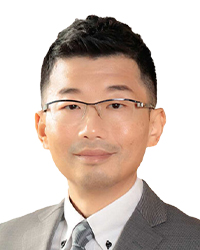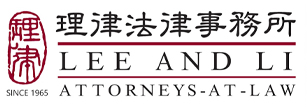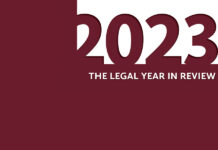The amendment to the Intellectual Property Case Adjudication Act of Taiwan marks its most substantial revision in more than 14 years.
The amendment grants exclusive jurisdiction over first-instance civil IP cases to the Intellectual Property and Commercial Court (IPCC), which also handles first instance criminal cases that violate the Trade Secrets Act. Cases involving misappropriation of national core trade secrets under articles 8.1 to 8.3 of the National Security Act shall be addressed by the second-instance tribunal of the IP court.

Partner
Lee and Li
Taipei
Tel: +886 2 2763 8000 Ext. 2122
Email: marrosju@leeandli.com
The amendment also broadens the applicant’s reach for confidentiality preservation orders, allowing parties to request these under certain circumstances. Penalties have been increased for violating these orders, which now include international violations. The amendment sets provisions limiting trade secret review in civil and criminal cases, allowing parties to request alternative identifiers for relevant documents before trial.
Legal representation is now mandatory for certain types of civil IP matters (e.g. civil lawsuits for patent infringement, computer program copyright infringement, or misappropriation of trade secrets). A neutral expert, known as an inspector, can be appointed for on-site evidence collection in cases of IP infringement. An expert witness system has also been introduced.
Courts are encouraged to collaborate with parties to establish trial plans, especially in cases involving mandatory legal representation, or when complexities arise. Reports provided by technical examination officers can now be disclosed, and parties can present oral arguments based on expert advice. The easing of the burden of proof in cases of trade secret misappropriation is extended to actions of patent or computer program copyright infringement.
The amendment improves trial procedures and strengthens protection of trade secrets. Furthermore, the introduction of mandatory legal representation for certain types of civil cases will help protect IP rights, making IP litigation more straightforward. The changes in the IPCC’s jurisdictions over civil and criminal cases serve a dual purpose: enhance the expertise of the judges; and achieve swift trial outcomes.
IMPLICATIONS FOR BUSINESS
The amendment will significantly reshape patent and trade secret infringement litigation, with trademark litigation largely unaffected.
Its most significant reforms revolve around the enforcement of mandatory legal representation, the role of inspectors, evidence collection procedures and a reduction in the evidentiary burden in cases of alleged infringement.
Enterprises should note that in specific types of IP civil cases, such as those above-mentioned, they are required to seek experienced patent attorneys for representation. In patent-related litigation, with a judge’s approval it is now possible to jointly appoint a patent attorney as a co-representative.
Concerned parties have the right to ask the court to appoint a neutral technical expert, enabling inspectors and expert witnesses to participate in the litigation process. This approach can help alleviate the burden of proof on the aggrieved party.
If parties accused of infringing patent rights or computer program copyrights have admitted to certain aspects of infringement, but continue to deny overall liability, the courts are empowered to require them to provide specific defences, mitigating the evidentiary challenge for the aggrieved party. This aims to address the difficulty in presenting evidence in cases of alleged infringement.
IP LITIGATION PREPARATION

Associate Partner
Lee and Li
Taipei
Tel: +886 2 2763 8000 Ext. 2328
Email: winonachen@leeandli.com
The IP owner shall bear the burden of proof in a dispute. Before initiating any legal action against an alleged infringer, an investigation to identify the infringing acts and collect evidence is normal.
The plaintiff can also consider filing a petition for evidence preservation to collect evidence of infringement, which may be preserved through a compulsory execution force of the court.
It is quite likely that an alleged infringer will file a cancellation action with the IP office against the asserted trademarks or patents after any enforcement action, or make trademark or patent validity challenges before the court hearing. If so, an assessment of trademark or patent validity is required. An assessment report prepared by a law firm or a third-party expert or institution is necessary to support the complaint.
While the issuance of a cease-and-desist letter is not a prerequisite to filing a lawsuit, it may help to prove an intentional infringement if the alleged infringer continues to infringe after the letter is issued. The IP owner may choose to issue a letter after collecting evidence.
Otherwise, a letter may alert the infringer and make the investigation and evidence collection very difficult. It is important for the IP owner to make sure that issuing such a letter shall not create an unfair competition issue.
If the plaintiff is a foreign company that has not been recognised in Taiwan, the court may, under the defendant’s motion, order it to pay a security bond for the court fees for the second-instance and Supreme Court levels (about 3.3% of the claimed amount), and the attorney fees for the Supreme Court level (not exceeding NTD500,000 [USD15,650]).
TRENDS IN IP LITIGATION
On average, trials held by the IPCC, including civil, criminal and administrative, are completed within a year, with the average completion time for a trial in 2022 at 219 days. The average duration of a trial has slightly increased.
From the third quarter of 2008 to the second quarter of 2023, civil cases took an average of 208 days in the first instance and 283 days in the second instance to complete. The average duration of first-instance administrative cases was 171 days; for second-instance criminal cases it was 136 days. Trade secrets cases averaged nearly a year, followed by patent cases, which took eight to nine months.
The chances of maintaining the original judgment in first and second trial appeals are very high, ranging from about 73% to 95% per year between 2013 and 2022, indicating the importance of the first-trial judgment and the need to sufficiently prepare for it.
There is no official statistical data on industries or sectors most prone to IP litigation, although there are statistics on types of cases in which technical examination officers participate in patent litigation. The IPCC now assigns such officers to provide professional opinions.
Analyses of trial performance indicators for various cases received by the IP court since its establishment 15 years ago, and trial practices of the related litigation system from 2008 to 2017, indicate mechanical cases accounting for 48% of patent cases in which technical examination officers were assigned, followed by electrical and electronic cases at 25%.
The high percentage of judges directly adopting (53%) or subsequently adopting a technical report after revision by a technical examination officer (47%) indicates that opinions of technical examination officers are an important factor in the process.
Between 2008 and 2017, cases with foreign plaintiffs usually had a higher success rate than the average, at 54% in first instance civil cases, 79% in trademark cases and 32% in patent cases. In first-instance administrative litigation, the success rate was 27%, led by trademark cases at 28%. According to the IPCC, the probability that an invalidity defence in a patent case would be accepted by the court was as high as 49% between the third quarter of 2008 and the second quarter of 2023.
BUSINESS CHALLENGES
South Korean companies are thus advised to assess the strength of an IP right before initiating litigation in Taiwan. Specifically, the plaintiff should first confirm the ownership and validity of the right. The cost-effectiveness of litigation should also be considered.
As higher-instance courts typically uphold first-instance judgments, the first-instance trial is crucial.
Unlike invention and utility model patents, design patents are easy to obtain and infringement easy to prove. The term of a design patent is now 15 years from the filing date of the application. South Korean companies are thus advised to apply for more design patents to enhance their IP rights.
Businesses may wish to make a public announcement or notify their clients of their enforcement of rights. However, South Korean companies should be aware of the risk of violating the Taiwanese Fair Trade Act, and ensure their announcement or notification is neutral and based on sufficient evidence. Otherwise, there is a risk for the counterparty to argue that such an announcement is unfair conduct that may affect trading orders.
When investing in an IP-related company in Taiwan, South Korean companies should conduct thorough due diligence of the target, confirming among others the IP owned by, used by or licensed to the target, including: those in the process of application; licensing or assignment agreements concerning the IP to or from the target; and any disputes related to its IP, and any claim against the target for infringement of another’s IP.
Special attention should be paid to ownership rights in cases where the rights were developed by employees, or where they were jointly developed or commissioned by external parties.

LEE AND LI
8F, No.555, Sec. 4, Zhongxiao E. Rd
Taipei 11072, Taiwan
Tel: +886 2 2763 8000
Email: attorneys@leeandli.com
www.leeandli.com






























